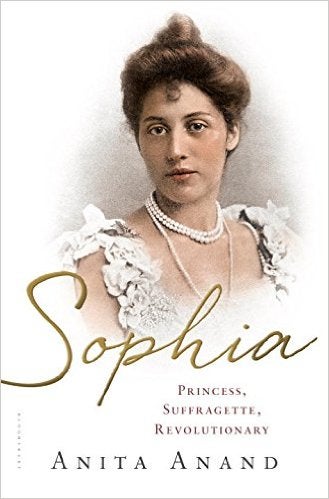
He disavowed his family, claiming he was no longer responsible for the debts into which he had driven them. Bored with marriage, Duleep descended into gambling, cavorting and drink. “I always feel so much for these poor deposed Indian princes.” “He is extremely handsome and speaks English perfectly, and has a pretty, graceful and dignified manner,” she noted. As soon as she saw him, her praise was exuberant. After converting from Sikhism to Christianity, the son was sent to England at the behest of Queen Victoria, who was captivated by descriptions of his beauty and impeccable manners. Duleep’s mother was imprisoned for refusing to acknowledge British rule. Perhaps even more than the protagonist, it is the character of her father, the Maharajah Duleep Singh, that best portrays the relationship between the Indian aristocracy and the empire. Photograph: Royal Collection Trust/Copyright Her Majesty Queen Elizabeth II Sophia’s father, the Maharajah Duleep Singh –painted here as a young man in 1854 by Franz Xaver Winterhalter – was a great favourite of Queen Victoria. The offer was withdrawn and Bamba returned to the UK despondent, joining her similarly downcast elder sister Catherine. “Although several universities were admitting women medical students, many Americans found the practice distasteful, believing like their British counterparts that women doctors were an affront to the natural order,” Anand writes. The arrival and ambitions of this exotic lady were a matter of fascination and consternation.

Her feisty sister, Bamba, initially secured a place at Northwestern University, near Chicago, to study medicine. So how did this spoilt princess, goddaughter of Queen Victoria, become a doughty fighter for women’s rights? Her turbulent family history influenced her greatly. On one voyage, back home to north-western India aboard the SS Barbarossa, a ship “designed to soothe and pamper even the tautest of travellers”, Sophia paid considerable attention to the etiquette of the captain’s banqueting table and avoiding the more vulgar guests.īut most of all she obsessed about her pooches, refusing suggestions that she might put the dogs in steerage with her maid, and “adamant that she was the best person to care for them, she fed the dogs on fine cuts of meat and the occasional nip of brandy”. She would strike absurd poses for newspaper photographers, marrying her two greatest loves: high fashion and dog-breeding. “The timid girl who used to squirm before the camera was now an unabashed show-off. Sophia takes the well-travelled route of private tutors and debs balls.


 0 kommentar(er)
0 kommentar(er)
